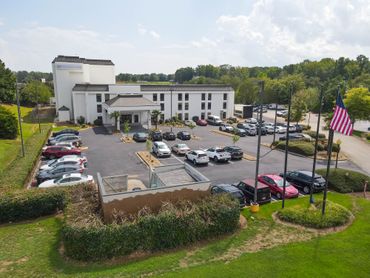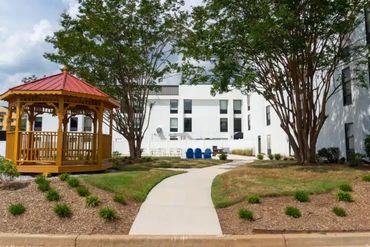
South Carolina Inpatient and Outpatient Rehab Centers Near Me for Drug and Alcohol Addiction
If you are struggling with drug or alcohol addiction, getting support is an important first step on the road to recovery. Drug and alcohol treatment centers in South Carolina offer evidence-based rehab programs to help you stop the cycle of substance misuse.
There are many types of drug and alcohol rehab centers throughout South Carolina, including inpatient and outpatient facilities and detox centers to help you safely manage the withdrawal process. If you are looking for alcohol or drug addiction treatment in South Carolina, browse the reviews below to learn about what each program offers and where it’s located.
Addiction treatment centers in South Carolina
Open to Travel? Check out Top-Rated Options
All Addiction treatment centers in South Carolina
Are You Covered For Treatment?
- Greenville Rehabs
- Charleston Rehabs
- Florence Rehabs
- Greenwood Rehabs
- Myrtle Beach Rehabs
- Spartanburg Rehabs
- West Columbia Rehabs
- Columbia Rehabs
- Aiken Rehabs
- Clinton Rehabs
Rehab Insurance Coverage in South Carolina
Rehab Centers in South Carolina
Information About Rehab in South Carolina
Latest Reviews
Latest Reviews of Rehabs in South Carolina
LRADAC
Strengths: The facility has highly qualified staff members who are very caring. Weaknesses: The facility needs to be able to offer more services to more people. I learned about this facility because i wanted a family member to get help and turn his life around. The process is not easy and the person must want it for themselves.
Recovery Concepts
Psychiatric addiction treatment - Medication Assisted Treatment.Does not accept Insurance. CARF accredited strong leadership knowledgeable and experienced staff multidimensional patient centered best practice program
GateWay Counseling Center
Incredible staff. Needed more activities .This facility helped to get my loved one home sober and clean.
Drug Addiction in South Carolina
In general, South Carolina has lower rates of substance abuse than the U.S. national average. However, the rate of prescription opioid and heroin overdose deaths has increased in recent years. In 2015, the number of deaths from heroin and other opioid overdoses in South Carolina surpassed deaths from homicides.5
Alcohol and marijuana appear to be the most commonly abused substances in the state, even though the number of SC adolescents using marijuana declined slightly from 2014 to 2015. 2
The number of people in South Carolina that receive addiction treatment, including medication-assisted treatment for opioid addiction, has increased in recent years, according to government statistics.
Addiction by the Numbers
- More than 500,000 South Carolina residents used marijuana in 2015, including 45,000 who tried it for the first time.1
- In 2015, 240,000 South Carolina residents or 5.9% had a diagnosed alcohol use disorder.1
- In 2015, 18% of high school students in the state reported that they took their first drink of alcohol before age 13, which is slightly above the national average of 17%.3
- In 2016, South Carolina experienced 550 deaths from a prescription opioid drug overdose.5
- Fatal overdoses from heroin in South Carolina increased by 14% from 2015 to 2016. Overdoses increased by 67% from 2014 to 2015.5
- Among those in treatment in South Carolina in 2015, 34.9% were getting help for a drug problem, 20.1% for an alcohol problem, and 45% for a combination drug and alcohol problem.2
- The number of people enrolled in substance abuse programs in South Carolina, according to a single-day count, increased from 14,217 in 2011 to 18,236 in 2015.2
How Much Does Rehab Cost?
The cost of rehab in South Carolina will depend on the facility and treatment program you select. You may choose a 28 or 30 day, 60-day or 90-day program, and you may be looking for private or luxury rehab facilities. No matter the cost, there are plenty of resources available to help you pay for the care you need.
Many health insurance plans cover addiction treatment services, and some rehab centers accept SC Medicaid and Medicare coverage as well. Contact your insurance provider to learn which facilities and services are covered by your plan.
Additional options, such as sliding scale fees and monthly payment plans, can be worked out directly with the treatment facility. There are also loans and scholarships available to those who do not have other means of paying for rehab, so do your research to determine which one is best for you.
Treatment Options
South Carolina has 94 government-recognized substance abuse treatment facilities, many of which offer medication-assisted treatment to help recovering users cope with cravings and adjust to their new abstinent lifestyle. Settings for addiction recovery in the state range from hospital inpatient to residential to outpatient.4
These programs offer specialized services for different ages and genders, as well as detox for alcohol and drugs. Many also offer self-help groups, assistance with aftercare, services for people who have experienced trauma, and family and couples‘ counseling.4
Local Resources for Recovering Addicts
- South Carolina Medicaid – Apply for low-cost insurance through the state government.
- South Carolina Department of Alcohol and Other Drug Abuse Services – Get information about alcohol and drug abuse, find treatment, and learn about support groups in your area.
- South Carolina Alcoholics Anonymous meetings – Find local AA meetings.
- South Carolina Narcotics Anonymous meetings – Find local NA meetings.
- The Council on Alcohol and Drugs – Learn more about state laws and establishing a drug-free workplace.
You can also explore a free alcohol abuse or drug addiction hotline number.
Rehab Insurance Providers
Helpful Addiction-Related Resources
Sources
- Substance Abuse and Mental Health Services Administration, Center for Behavioral Health Statistics and Quality. National Survey on Drug Use and Health, 2014 and 2015. South Carolina.
- Substance Abuse and Mental Health Services Administration. Behavioral Health Barometer: South Carolina, Volume 4: Indicators as measured through the 2015 National Survey on Drug Use and Health, the National Survey of Substance Abuse Treatment Services, and the Uniform Reporting System. HHS Publication No. SMA–17–Baro–16–States–SC. Rockville, MD: Substance Abuse and Mental Health Services Administration, 2017.
- U.S. Department of Health and Human Services. (2017). South Carolina Adolescent Substance Abuse Facts.
- Substance Abuse and Mental Health Services Administration. Behavioral Health Services Information System Series: National Directory of Drug and Alcohol Abuse Treatment Facilities 2017. BHSIS Series S-96, HHS Publication No. (SMA) 17-5045. Rockville, MD: Substance Abuse and Mental Health Services Administration, 2017.
- South Carolina Department of Health and Environmental Control. Opioid Statistics.













